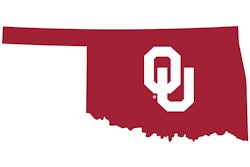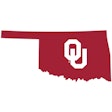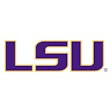|
Copyright 2013 Gannett Company, Inc. All Rights Reserved USA TODAY |
|
August 28, 2013 Wednesday
FINAL EDITION |
|
SPORTS; Pg. 1C
|
|
1424 words
|
| NFL keeps heads up on youth; League says safety, not business, key to support of tackling program |
|
Gary Mihoces, @garymihoces, USA TODAY Sports
|
|
Millions of kids still play tackle football. The NFL still makes billions of dollars. But both are challenged by concussions, which don't discriminate between pee-wees or pros. And a dip in youth participation has the NFL's attention, too. During practice with the Alexandria Titans of the Fairfax County Youth Football League, the game's next generation is being taught a tackling method aimed at keeping the brain safer and securing football's future. It is part of an NFL-backed program called Heads Up Football. "You have to keep it up. If you keep it down, you'll probably get a concussion," says Jourdan Clayton, 8. Heads Up was launched nationally this year by USA Football, a non-profit that gets funding and promotion from the NFL. USA Football says 2,800 youth programs with about 600,000 players have joined. So why is the NFL, which has seen more than 4,000 ex-players file lawsuits alleging the league knowingly failed to protect them from concussions for decades, getting involved in youth football and its safety agenda? The league says Heads Up is about doing the right thing in a partnership with USA Football that began more than a decade ago. Outside observers describe it variously as a smart business move for the long haul or, more cynically, as an effort to spin football as safe -- when it isn't -- as parents question whether to let their kids play. USA Football estimates youth participation dropped last year to about 2.82 million players from 3million in 2011. Tommy Thompson, chairman of the Fairfax County league, says it will have about 6,000 players among 22 clubs this season. It had 7,200 three years ago. "Our league grew for 12 straight years until three years ago, and when the concussion controversy started, our numbers started to drop," Thompson says. "We believe that has been the main driver of the decline in our enrollment." The suits against the NFL allege the league fostered a culture of violence and ignored long-term effects of concussions, including brain damage triggering depression, dementia and suicide. In May 2012, former NFL star Junior Seau committed suicide. Tests of his brain showed a degenerative disorder. The NFL has stepped up efforts to penalize and fine illegal hits and bolster the recognition and treatment of concussions. But concussion issues linger. And the fallout continues to make headlines. Last week, ESPN pulled out of documentary film with the PBS series Frontline. The film is called League of Denial: The NFL's Concussion Crisis. The NFL says it did not pressure ESPN. The network says the decision was based on editorial control and it will continue to cover concussions. Meanwhile, TV spots running on this summer's preseason game broadcasts say, "Together, we make the game safer. ... Make sure your coach is Heads Up certified today." NFL players have Heads Up decals on their helmets. NFL business move? Forbes reported that NFL franchises are worth an average of $1.17 billion, up 5% from last year. Robert Boland, who teaches sports law and management at New York University, says the NFL involvement in Heads Up is a smart business move. "I think the NFL recognizes that the sport has been under a lot of pressure from the concussion litigation. For the sport to continue to thrive ... there has to be a playing base from youths on up," Boland says. "I think it's a professional sport understanding their long-term future needs to be ensured." But Jeff Miller, NFL senior vice president of government relations and public policy, said the league was motivated by safety concerns. "So I don't think we discuss it as a business investment," Miller says. "We discuss it about our responsibility as the leader in football to do the right thing for the right reasons." Miller noted that the league also had been involved in concussion research and advocating around the country in support of state laws mandating medical clearance before return to play after youth concussions. "There hasn't been any conversation that I've ever been a part of that ... connects any of the things that I mentioned with legal issues," Miller says. Michael Kaplen, who practices brain injury law and teaches it at George Washington University in Washington, disputes the NFL's stance. "The sad truth is that anything the NFL does is suspect because the NFL does nothing for altruistic reasons. They do it because it helps them clean up their image," Kaplen says. "What they're doing is putting a spin on football as being safe. ... Football is a concussion delivery system." Kaplen says Heads Up is a marketing scheme. He'd prefer there was no youth football. "They're trying to paint a rosy picture by throwing money at this. Well, you can't make it safe. You could try to make it safer, but you're never going to make it safe," Kaplen says. "So you can't go tell the parents, 'You know what? We've come up with this quote-unquote safe tackling system, so you don't have to worry about your kid getting a concussion.'" Youth football advocates often point out that concussions occur across sports and in recreational activities such as cycling and skateboarding. But football, tops in mass appeal, is in the spotlight. Scrutiny of the issue at the NFL level has heightened it at all levels of football. Scott Hallenbeck, executive director of USA Football, says of the 6% drop in youth participation: "The only time we've seen a statistically viable drop is this past year. Our hope is we stem the tide this year and start to see it plateau and eventually work its way back up." He says NFL support has been key to the fast growth of Heads Up: "Without the NFL standing behind it ... we would have never had the engagement level that we've had now." 'WE DO IT RIGHT' USA Football, based in Indianapolis, was endowed in 2002 with a $3 million grant split 50-50 by the NFL and the NFL Players Association. The union no longer funds USA Football. NFLPA spokesman Carl Francis says the union opted to go in a different direction in its youth efforts after the 2011 collective bargaining agreement. Hallenbeck says the NFL still provides 20% to 25% of USA Football's annual funding. The rest comes from sponsors, membership fees and events. Miller said that this year, in addition to its regular grant, the NFL Foundation provided $1 million tailored to Heads Up. "The commissioner (Roger Goodell) looked at this with a critical eye," Hallenbeck says. "He said to me repeatedly, 'Scott, this is the right way to go, but let's make sure we get the support for this and we do it right." Tackling technique is the core of Heads Up. Players are taught to hit with the front of the shoulder pads with their head up and to the side. Heads Up is now moving to the high school level. All 25 public high schools in Fairfax County have pilot programs this season, along with seven other high schools in seven states. Hallenbeck says the plan is to open up the program to a much larger pool of high schools next year. The National Federation of State High School Associations has endorsed Heads Up. Last year, it says, 1,088,158 players participated in 11-player football, about a 1% decline from 2011-12. "It's a very, very small number (decline), so we're pleased about that," says Bob Gardner, executive director of the association. "But we don't want that drop to continue. We want to head that off." Sports such as wrestling and soccer also had slight drops. But football remains the No.1 participatory sport for high school boys, by far. ANXIOUS ABOUT HEAD INJURIES Tom Lacey and his wife, Nancy, sit on folding chairs watching their son, Tommy, 11, practice with the Alexandria Titans. They welcome Heads Up. They are aware of concussion issues. "Absolutely," Nancy says. "My mom is a retired speech pathologist, and she worked with head injuries at Walter Reed (military medical center), and she's very anxious. I'm very anxious about head injuries. ... It makes me feel better that they're addressing that part of it." She says of Heads Up, "If it didn't exist, I think we definitely would have had more discussions about maybe steering him in another path." Julius "Doc" Moultrie, 63, has coached youth football in Alexandria since 1970. "We were teaching kids to keep their head up and do those kinds of things," Moultrie says. "But it would just be a conversation. ... "Now, by learning it step by step, it changes it all compared to just saying, 'Don't lead with the head.'" In a drills at Titans practice, Evan Bellanca, 8, keeps his head up. "I guess they decided to do this so we don't get hurt," he says. "I think it's good." |
|
photo H. Darr Beiser, USA TODAY SPORTS
|
|
August 28, 2013
|
Terms and Conditions Privacy Policy



































